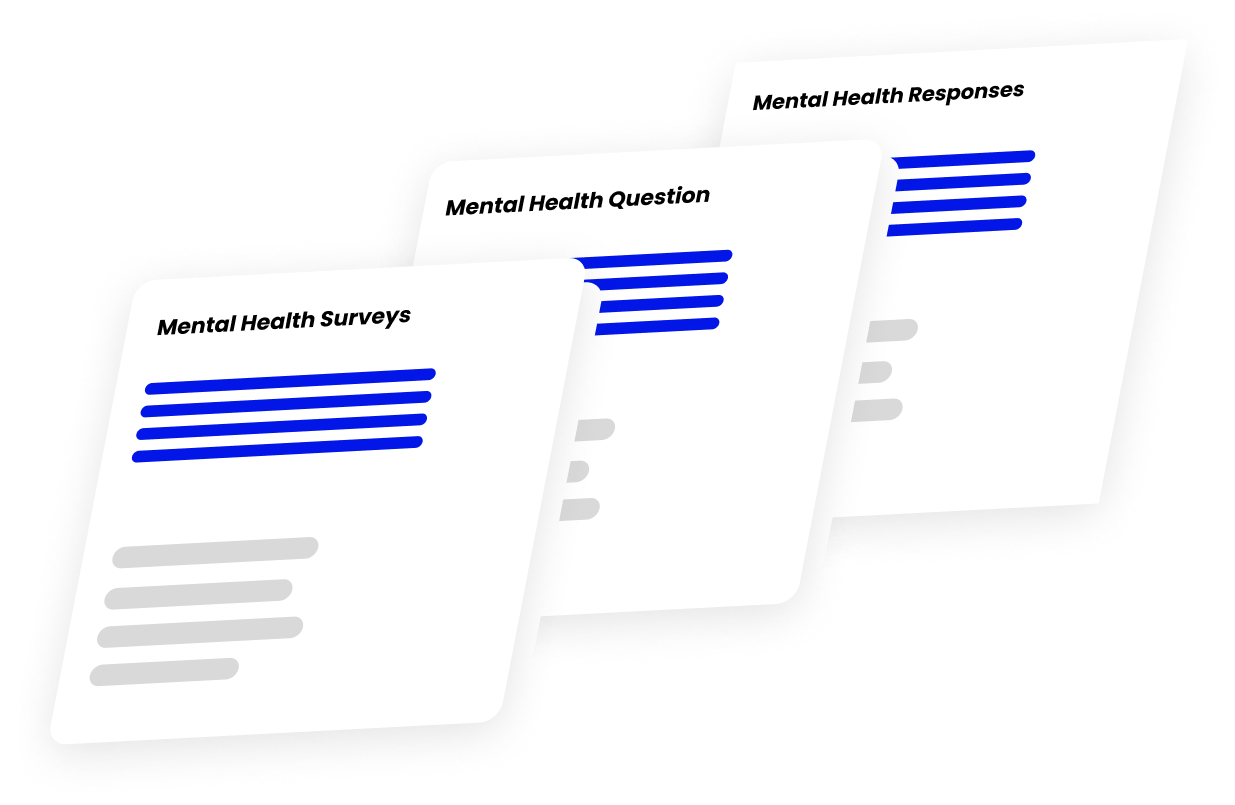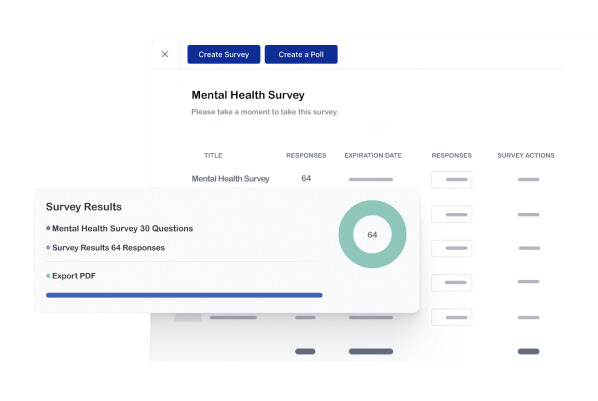Mental Health Surveys
A Mental Health Survey can be a valuable tool for identifying mental health issues and the level of need for support among police officers. By gathering data through a mental health survey, it is possible to identify areas of concern and provide targeted assistance to officers who may be struggling with mental health issues.
The results of the survey can be used to design and implement appropriate interventions and support services, helping to promote the overall well-being of the department’s officers.
What Is a Mental Health Survey?
A Mental Health Survey is a tool used by police departments to assess officers’ mental health. It typically consists of a series of questions related to mental health issues such as depression, anxiety, stress, and substance use. The survey may be administered in various formats, including online using Officer Survey.
Mental health surveys can be an effective way for police departments to identify potential mental health problems among their officers and the severity of those problems. Based on the survey results, the department can provide targeted assistance to officers who may be struggling with mental health issues, such as counseling, therapy, or other support services. By addressing mental health concerns among its officers, a police department can help promote its workforce’s overall well-being and improve its operations’ effectiveness. Take a free mental health test now.
Why Should It Be Done?
1. Identify mental health issues: Mental health surveys can help to identify mental health problems among police officers that may not be apparent otherwise. This can allow the department to intervene early and provide necessary support and resources.
2. Promoting officer well-being: By identifying and addressing mental health issues among its officers, a police department can help promote its workforce’s overall well-being. This can improve officers’ morale, productivity, and job satisfaction.
3. Improving officer performance: Mental health issues can have a negative impact on an individual’s performance and decision-making abilities. By identifying and addressing mental health problems among its officers, a police department can help ensure that its officers perform at their best.
4. Building trust and credibility: By demonstrating a commitment to the mental health of its officers, a police department can build trust and credibility with the community. This can help to improve relationships between the department and the community and promote a positive image for the department.
Overall, conducting mental health surveys can be an effective way for police departments to identify and address mental health issues among their officers and promote the overall well-being and effectiveness of the department.

Mental health surveys may provide the following benefits:
- Identify the prevalence of mental health disorders in a police force.
- Identify risk factors for mental health disorders.
- Identify protective factors against mental health disorders.
- Identify the most effective interventions for mental health disorders.
- Evaluate the effectiveness of mental health interventions.
- Monitor changes in the prevalence of mental health disorders over time.
- Compare the prevalence of mental health disorders between different populations.
- Compare the risk factors for mental health disorders in different populations.
- Compare the protective factors against mental health disorders in different populations.
- Compare the most effective interventions for mental health disorders between different populations.
- Evaluate the effectiveness of mental health interventions in different populations.
- Monitor changes in the prevalence of mental health disorders over time in different populations.
- Compare the prevalence of mental health disorders in different countries.
- Compare the risk factors for mental health disorders in different countries.
- Compare the protective factors against mental health disorders in different countries.
- Compare the most effective interventions for mental health disorders in different countries.
- Evaluate the effectiveness of mental health interventions in different countries.
- Monitor changes in the prevalence of mental health disorders over time in different countries.
- Identify the prevalence of mental health disorders in different age groups.
- Identify the prevalence of mental health disorders in different ethnic groups.
Benefits Of Mental Health Survey
Mental health surveys can:
- Identify mental health problems that may not be obvious
- Help organizations provide support and resources for mental health issues
- Improve morale, productivity, and job satisfaction
- Improve performance and decision-making abilities
- Build trust and credibility with stakeholders
- Evaluate the effectiveness of mental health interventions

Conducting a Mental Health Survey offers several advantages:
- Identifying needs and service gaps.
- Identifying trends.
- Evaluation of the effectiveness of interventions.
- Monitoring progress over time.
- Identification of risk factors.
- Identification of protective factors.
- Identification of early warning signs.
- Identification of barriers to care.
- Identification of unmet needs.
- Identification of disparities.
- Determination of service utilization patterns.
- Determination of gaps in service provision.
- Provide accessibility to peer support and clinicians.
- Determine measures for the best practices.
- Outline and identify training needs.
- Identification of areas for research.
- Proactively understand officers needs.
- Assist in effective resource allocation.
- Create a fostering support group.
- Identify support gaps, and provide the right assistance.


